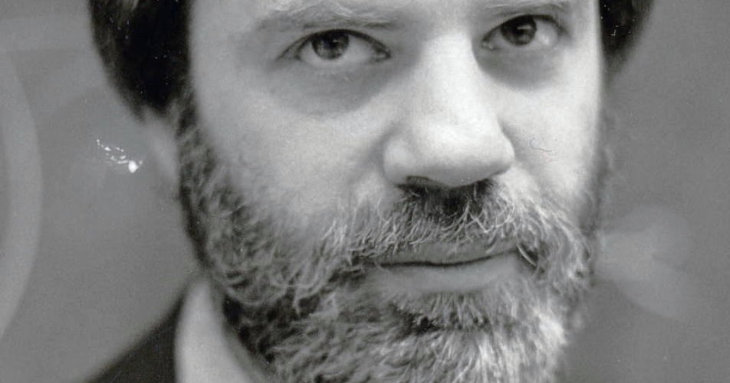 Passover’s Message of Hope in the Aftermath of Oct. 7
Passover’s Message of Hope in the Aftermath of Oct. 7


7 min read
How the act of naming things links the philosophical and Kabbalistic worlds.
Academic philosophy has erased Judaism, despite many prominent philosophers coming from Jewish backgrounds. Some, like Jacques Derrida and Martin Buber, locate their thought in the Jewish tradition, but with others, their Jewishness is just a mere trivia question.
We are trying to re-Judify these secular philosophers of Jewish heritage by viewing their work through a Jewish lens – historical, biblical, Talmudic, or cultural. We don't claim that these thinkers hid Judaism in their work, but rather that by looking from interesting angles, something that looks Jewish can be seen in it. We did this in our recent book Reclaiming the Wicked Son with six important thinkers and are continuing with more in a series for Aish.
Let's start with Saul Kripke, who just died of cancer on September 15th. While some of his actions were morally problematic, we look only at his philosophy to understand this logical genius as part of the Jewish intellectual project.
The son of a rabbi, Kripke did groundbreaking work in philosophy of language and logic as a mainstay of the philosophy department at Princeton. Well-known for his interpretation of the writings of Ludwig Wittgenstein, some scholars, like Stephen, hold it to be completely different from what Wittgenstein actually thought, while others, like Steve, think it is even smarter. Kripke's unique understanding of Wittgenstein is referred to as "Kripkenstein,"…which sounds like the world's most boring monster movie that might include the following scene:
Old man: I wouldn't go through that door if I were you. It's the laboratory of a mad scientist.
Teenager: Define "mad."
Old man: Can you define anything? Are you asking for necessary and sufficient conditions for mental illness? Can't it be a family-resemblance relation which loosely groups all sorts of cognitive, neurological, and emotional impairments that hamper one's ability to flourish?
Teenager: But that looseness allows for pseudo-questions. Surely, we should be more rigorous, old man.
Old man (as teenager walks through the doorway): Now, we know what happened to the last of the logicians. (eerie music swells)
Kripke's masterpiece is Naming and Necessity, in which he considers what is meant by the word "truth." Consider the sentence, "Supreme Court Justice Louis Brandeis was Jewish." That sentence is true because of the way the words connect to the world. The sentence contains a description of part of the world, and the sentence is true if the world really is that way.
Now think about another sort of sentence, those about possibility and necessity. Consider "Supreme Court Louis Brandeis might have been born female." We want to say it is true. His parents might have had a son or daughter and just happened to have a son.
Or consider, "Given the biases of the time, it is impossible that Louis Brandeis would have been made a Supreme Court justice if he had been born female." This premise also seems true. It was hard enough to get a Jew on the Court in 1916, but since it was sixty-five years before Sandra Day O'Connor was appointed, our new sentence seems true.
 Saul Kripke (Source http://sargonauta.blogspot.com/2013/01/logica-y-filosofia-del-lenguaje-saul.html)
Saul Kripke (Source http://sargonauta.blogspot.com/2013/01/logica-y-filosofia-del-lenguaje-saul.html)
While both of these new sentences are intuitively true, Kripke examined what makes them true. If truth requires a correspondence between words and the world, how can we say that something about how the world might be – but isn't – is true of the world? Knowing that Louis Brandeis was not born female, how can we say he might have been? What does the word "might" mean here? How can we distinguish true from false "might" sentences?
Similarly, what makes a sentence necessarily true? When we say 1+1=2 is not just true but has to be true, what does "has to" mean? That is what is worked out in what is known as "Kripke semantics."
He starts by making our world, the actual world, one of the set of all possible worlds. Each possible world is a collection of all the things and events that make up a reality. To say that something is possible is to say that there exists at least one possible reality in which that sentence accurately describes the state of things. "Supreme Court Louis Brandeis might have been born female" is true because there are possible worlds where he was.
To say that something is possible is to say that there exists at least one possible reality in which that sentence accurately describes the state of things.
On the other hand, necessary truth is truth in every possible world. 1+1 will always equal 2, no matter what else is different. Now reconsider "Given the biases of the time, it is impossible that Louis Brandeis would have been made a Supreme Court justice if he had been born female." In some possible worlds – those in which the biases of the time in our world hold – the sentence will be true.
But there are other possible worlds in which those biases are overcome by 1916. In that possible world, Louise Brandeis (female Louis Brandeis) does become a Supreme Court justice. It could happen and thus does happen in a possible world, so the sentence is not true in all possible worlds and therefore is not a necessary truth.
Naming creates identities across possible worlds. The name picks out a specific thing in each possible world where it exists.
But Kripke had a problem. We have to be able to talk about Louis Brandeis not just in our world but also in other possible worlds. What makes Louis Brandeis in our world the same person as Louise Brandeis in another possible world?
Kripke solves this problem by making names into what he calls "rigid designators." Naming creates identities across possible worlds. The name picks out a specific thing in each possible world where it exists. "Louis Brandeis" is a rigid designator that points to the thing that is the version of Louis Brandeis in each universe. Names, therefore, transcend our reality, connecting all the possible universes. If "supernatural" means powers beyond those of our world, the transcendental power of names as rigid designators qualifies.
This approach both solves Kripke's problem and makes his semantics Jewish. Outside the Hebraic world, names are meaningless strings of letters on a "Hi, my name is" sticker. But to Jews, names are much more. We name our children after forebears. Surnames like "Cohen" and "Levy" continue to refer to roles from the time of the Temple. The Talmud praises the former slaves in Egypt for keeping their Jewish names.
But the most important is the name of God, which is so significant that it has its own name, "HaShem," which translates to "the name." In other words, "The Name" is actually the name of the name, so we can say "the Name" instead of saying the name.
The name itself, YHWH, is never uttered, instead saying "Adonai." Indeed, there are seven names for God in the Hebrew Bible that demand scribes take exceptional care: El, Elohim, Adonai, YHWH, Ehyeh-Asher-Ehyeh, Shaddai, and Tzevaot.
Mixing letters from Exodus 14:19-21, Kabbalists identify seventy-two names for HaShem that provide transformative energy. On Yom Kippur, the High Priest is to provide atonement through purification (Leviticus 16:30) by uttering the special forty-two letter name of HaShem when confessing, filling the people with sacred thoughts. Even he does not utter the fully-formed name but swallows it.
The name contains the power of what it names. Merely thinking about the names of HaShem fills you with holy understanding. In written form, it gives you the power to create life. Form of a person from clay and dust and insert a piece of parchment with the forty-two letter name into its mouth, and it becomes animated as a Golem. Legend says that 16th-century rabbis Judah Loew ben Bezalel of Prague and Eliyahu of Chelm used the transcendental power of the name in this way.
Today, the Golem cannot but conjure images of Frankenstein and his monster. Still, when we understand the philosophical account of the transcendental power of names, perhaps the better image is Kripkenstein and his semantics.
